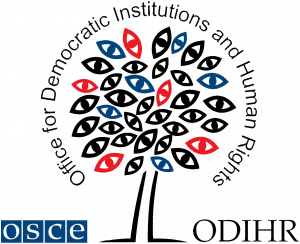
The OSCE Office for Democratic Institutions and Human Rights (ODIHR) provides support, assistance and expertise to participating States and civil society to promote democracy, rule of law, human rights and tolerance and non-discrimination. ODIHR observes elections, reviews legislation and advises governments on how to develop and sustain democratic institutions. The Office conducts training programmes for government and law-enforcement officials and non-governmental organizations on how to uphold, promote and monitor human rights.
ODIHR is mandated to assist OSCE participating States in promoting women’s political participation, monitoring and reporting on women’s participation in elections and strengthening democratic institutions for advancing gender equality, as described in the 2004 OSCE Action Plan for the Promotion of Gender Equality and the 2009 Ministerial Council decision on Women’s Participation in Political and Public Life.
While significant advances have been made in promoting gender equality in the OSCE region, inequalities persist in both private and public spheres, often based on stereotypes and conventions perpetuated at the state level and in society at large. Despite the existence of national legal frameworks and specific OSCE commitments, full and true gender equality and gender balance remain only an aspiration in most participating States. De jure declarations of equality have yet to be transformed into de facto reality across the OSCE region.
Women continue to be underrepresented in governing structures across the OSCE region, and particularly in decision-making positions. To this end, ODIHR facilitates and supports institutional change, knowledge sharing and capacity building for advancing women’s representation, roles and influence in political and public life. Good practices for enhancing women’s participation in political parties, elections, local and national politics and parliaments are presented in ODIHR’s Compendium of Good Practices on Advancing Women’s Political Participation in the OSCE Region. ODIHR fosters women’s participation in parliaments by sharing expertise on gender-sensitive parliaments and supporting structures that enable women to influence legislative agendas, as outlined in the Comparative Study of Structures for Women MPs in the OSCE Region. Using its methodology for gender auditing of political parties, ODIHR promotes gender equality in political parties and provides them with technical support to make party structures, policies and programmes gender-sensitive, as outlined in the Handbook on Promoting Women’s Participation in Political Parties. Special attention is paid to fostering internal party democracy and mainstreaming gender aspects into political party regulation, as outlined in the ODIHR–Venice Commission Guidelines on Political Party Regulation.

